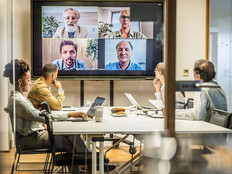What Government Employees Think About Consumer Technology at Work
Consumer technology in the workplace is considered “rogue” by some people, but in reality, nearly every government employee is interacting with personal technology on a daily basis. Whether it’s smartphones, social media or cloud storage, technology is affordable enough that consumers are almost always a step ahead of the IT department. This creates some issues for IT workers, especially where security is concerned.
Should workers be able to access government data on personal devices? And should government devices be used for personal computing? The line between professional and personal computer use is gray at best. Bring-your-own-device (BYOD) programs are a potential solution but require policy as well as technological and financial commitments.
Consumer technology can also boost productivity without sacrificing security if monitored correctly. If employees want to use their personal technology, it’s likely they will do so, whether the IT department supports them or not. Unisys makes a strong case for allowing personal devices and tools, as long as employees agree to policies that protect the agency:
For every organization, productivity may mean something slightly different, such as employees’ ability give higher quality service to customers or citizens, meet critical deadlines, drive new innovations, or bring products or services to market faster. However, for every organization, productivity means employees using their time most efficiently and effectively, which requires giving them the right tools, access and information they need, when and where they need them. By tightening security controls too much and denying employees the right tools, access and data, productivity is stifled.
The key question presented to IT departments today is: how can they measure the productivity benefits gained from mobility and consumer technology against the risks and costs of an extended security model? The answer lies in two parts: firstly, actively and comprehensively monitoring the IT environment and secondly, better understanding users’ role requirements so it can be determined if the IT environment is truly supporting them to do their jobs effectively.
Download Consumer Technology in the Workplace: Managing Security Risks and Maximizing Employee Productivity.
To explore this growing issue, MeriTalk surveyed 220 federal employees “to understand how they currently adopt and use new technology, both at work and in their personal lives.” The results are interesting, and a few of the most intriguing findings are listed below:
Download Consumer Crossover: Me, Myself, and IT Report here.
Read Why Every Federal Employee Is Their Own IT Department to learn more about consumer technology in the workplace.








